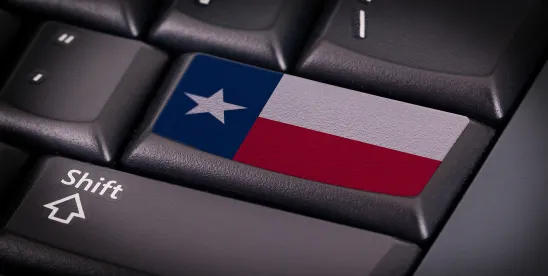Following this year’s Texas legislative session, two bills are set to go into effect in Texas related to the use of nondisclosure and confidentiality agreements for claims of sexual assault and artificial intelligence (AI).
Quick Hits
- Texas Senate Bill 835, effective September 1, 2025, voids any nondisclosure or confidentiality provisions in agreements that prohibit the disclosure of sexual abuse or assault, applying retroactively unless a court order permits nondisclosure.
- Texas House Bill 149, known as TRAIGA 2.0, effective January 1, 2026, establishes a regulatory framework for AI systems in Texas, including oversight mechanisms, ethical standards, and prohibitions against discriminatory AI practices by employers.
Nondisclosure and Confidentiality Provisions for Sexual Assault Claims
Senate Bill 835 renders void and unenforceable any nondisclosure or confidentiality provision in an agreement—including settlement agreements—to the extent the provision prohibits the disclosure of an act of sexual abuse or sexual assault. The law goes into effect on September 1, 2025. Under the law:
- Unless a party seeks and obtains a declaratory judgment and court order permitting nondisclosure, the prohibition applies retroactively to all agreements entered into before the law’s effective date, September 1, 2025.
- While facts or allegations of sexual abuse or assault may not be made confidential, parties may still agree under Texas state law to keep other terms of a settlement agreement confidential, such as payment amounts or unrelated provisions.
- The law does not create a private right of action but makes these confidentiality provisions unenforceable as a matter of law.
Artificial Intelligence
Texas has joined a growing number of states in enacting comprehensive AI legislation. House Bill 149, also known as the Texas Responsible Artificial Intelligence Governance Act (TRAIGA 2.0), takes effect on January 1, 2026. TRAIGA 2.0 establishes a regulatory framework for the development, deployment, and use of AI systems, with particular focus on state government operations, but it also affects private employers.
- TRAIGA 2.0 creates oversight mechanisms and ethical standards for how the Texas government adopts and manages AI.
- It establishes an AI “Regulatory Sandbox Program,” allowing for the testing and evaluation of innovative AI systems in a controlled environment designed to foster responsible innovation while monitoring for risks and unintended consequences of AI.
- With respect to all Texas employers, TRAIGA 2.0 prohibits the development and deployment of AI systems that intentionally discriminate against protected classes in violation of state or federal law. Unlike anti-discrimination provisions in the Texas Labor Code, TRAIGA 2.0 does not create a private cause of action. Instead, enforcement is vested in the Texas Office of the Attorney General.




 />i
/>i
